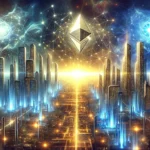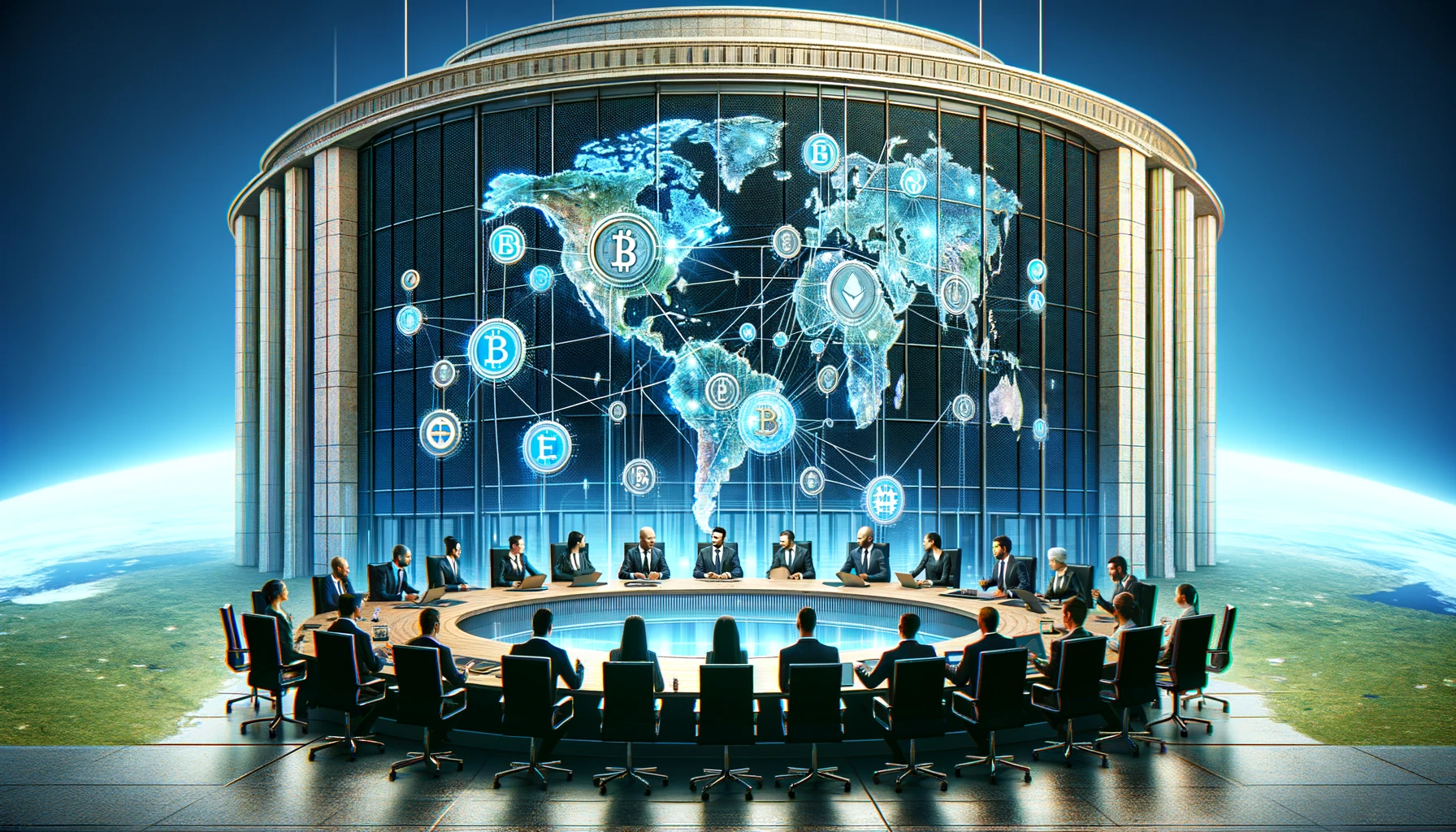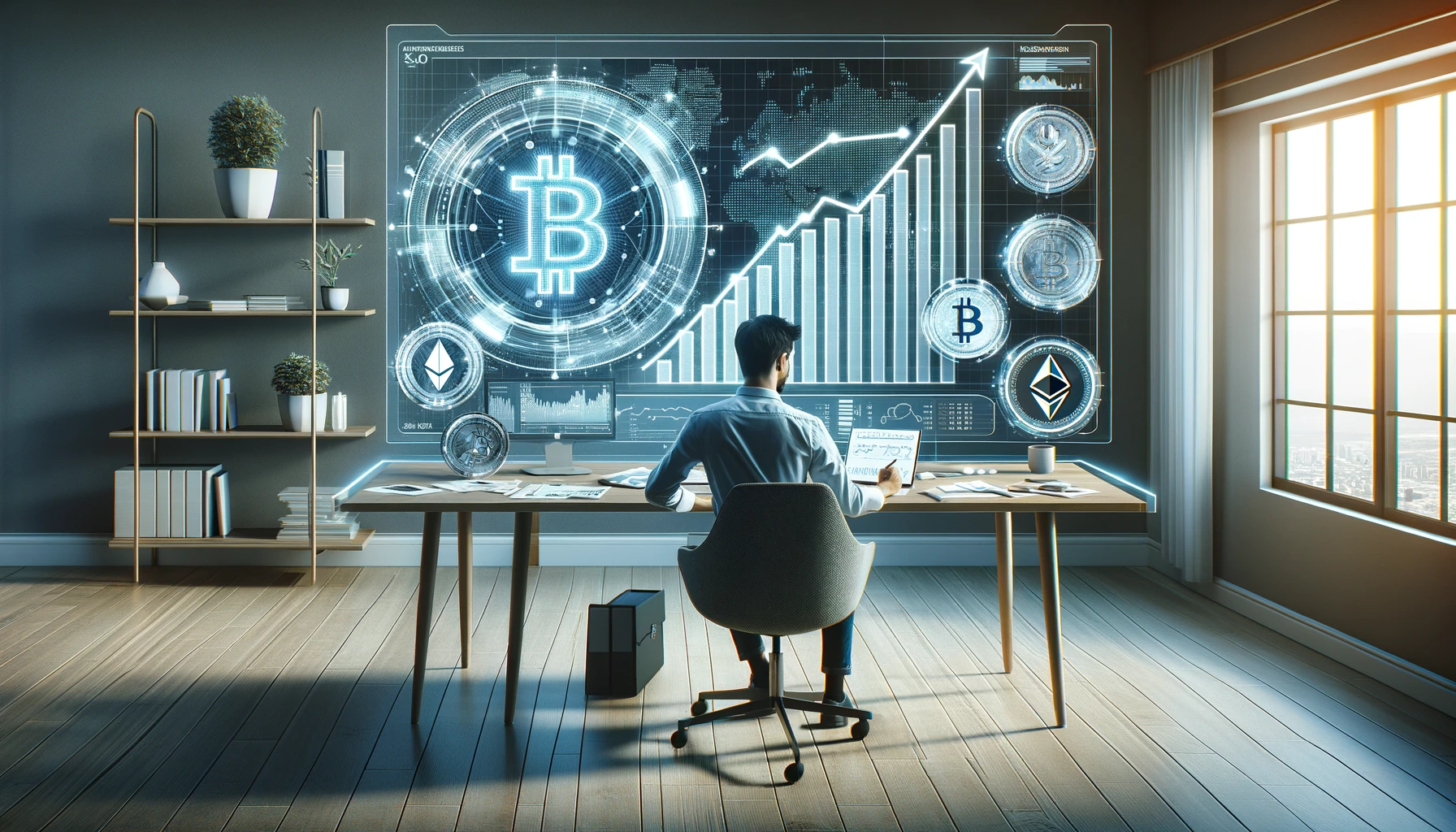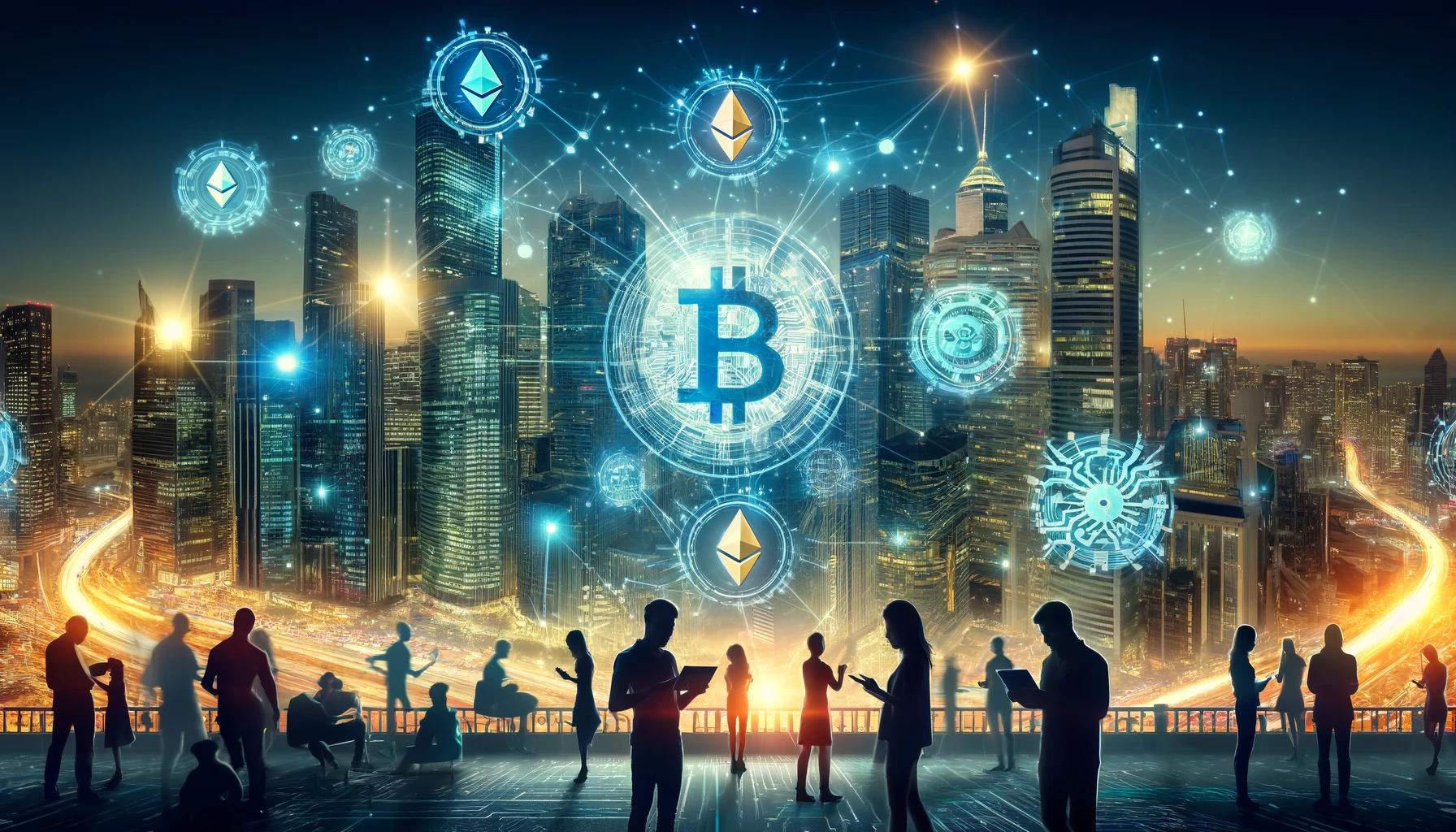In a world where the digital realm is becoming increasingly intertwined with our physical realities, Non-Fungible Tokens (NFTs) have emerged as more than just buzzwords within the art community.
These unique cryptographic assets are reshaping industries beyond galleries and screens, opening up a new frontier of possibilities that extend far beyond the confines of traditional art collections.
Imagine a future where authenticity, ownership, and value transcend tangible forms to revolutionize how we interact with everything from real estate to virtual avatars.
As we delve deeper into the expansive universe of NFTs, it becomes evident that their potential stretches far beyond mere pixelated masterpieces or viral memes.
While these digital tokens have captured headlines for their record-breaking sales in art auctions, their true power lies in disrupting established norms across diverse sectors like gaming, music, fashion, and even intellectual property rights.
Buckle up as we embark on a journey through the untapped landscapes of blockchain innovation and explore how NFTs are not merely changing hands but also rewriting the rules of ownership itself. Intrigued? Let’s unravel this paradigm shift together and discover why NFTs are about much more than meets the eye – or screen.
Unlocking NFT Potential Across Diverse Industries
Non-fungible tokens (NFTs) have transcended their initial realm of digital art and are now permeating various industries, revolutionizing traditional practices with blockchain innovation. In the gaming sector, NFTs are reshaping how players perceive in-game assets, offering true ownership and unique customization options.
From rare skins to exclusive weapons, gamers can now truly own their digital belongings and potentially trade them across different gaming platforms seamlessly. This opens up a whole new economy within the gaming world, where value is not just derived from skills but also from the rarity and uniqueness of digital items.
Moreover, real estate ventures are beginning to explore the potential of NFTs in digitizing property ownership and tokenizing real-world assets. Imagine owning a fraction of a prestigious building in New York through an NFT or investing in property markets globally without dealing with cumbersome paperwork.
This shift towards virtual property ownership could democratize access to real estate investments for individuals worldwide, paving the way for new forms of asset management and investment diversification like never before.
The potential synergies between blockchain technology and tangible assets hint at a future where borders blur between physical and digital realms, creating boundless opportunities for investors seeking novel avenues for growth.
In the realm of collectibles and music rights management, NFTs offer artists unprecedented control over their intellectual property rights while granting fans direct engagement with exclusive content.
Authenticity verification becomes seamless with each unique token representing a specific piece of art or musical work – ensuring that creators receive due recognition while collectors enjoy verifiable ownership alongside potential resale value appreciation.
As these concepts permeate deeper into mainstream consciousness, we witness a paradigm shift where artistry is not only about creation but also about empowering artists to connect directly with their audiences on an immutable platform that champions transparency and fair compensation models.
Case Studies: Unleashing the Power of NFTs Beyond Art
Delving into the realm of real-world applications, non-fungible tokens have sparked transformative changes across industries. One standout example is the music sector’s embrace of NFTs to revolutionize royalty distribution.
Through smart contracts encoded in NFTs, musicians can directly receive royalties from digital sales and streaming platforms in real-time, bypassing intermediaries and ensuring fair compensation for their work.
This innovative approach not only empowers artists but also engenders a closer connection with fans who can own exclusive pieces of their favorite tracks or albums as unique digital collectibles.
Moving beyond entertainment, the realms of education and certification are witnessing a paradigm shift fueled by NFT integration. Universities and online learning platforms are exploring blockchain-based credentials authenticated through non-fungible tokens to verify academic achievements and professional skills securely.
By anchoring qualifications to tamper-proof tokens on decentralized ledgers, individuals can showcase their expertise transparently while institutions streamline validation processes efficiently.
This novel application not only enhances trust in educational certifications but also opens new avenues for lifelong learning where verifiable achievements hold tangible value in an increasingly digitized world.
These examples illuminate how non-fungible tokens transcend mere artistic expression to redefine transactional relationships fundamentally across diverse sectors.
The path paved by successful implementations hints at a future where ownership, authenticity, and value exchange undergo profound redefinition through blockchain technology’s transformative capabilities encapsulated within each unique NFT token assignment.
Challenges and Opportunities in NFT Technology:
In the realm of non-fungible tokens (NFTs), a landscape brimming with innovation also presents its own set of challenges and opportunities. One prominent challenge lies in ensuring the authenticity and provenance of digital assets attached to NFTs, particularly as cases of plagiarism and counterfeit tokens have surfaced.
This necessitates robust verification processes and transparent documentation mechanisms to safeguard against fraudulent activities. Additionally, the environmental impact of blockchain networks supporting NFT transactions raises concerns regarding sustainability practices within the industry.
As awareness grows around the energy-intensive nature of certain blockchain protocols, there is a pressing need for developers to explore eco-friendly alternatives or implement greener solutions to mitigate carbon footprints.
However, amidst these challenges are abundant opportunities waiting to be seized within the expanding NFT ecosystem. The potential for democratizing access to ownership through fractionalized NFTs opens doors for broader participation in investment markets traditionally reserved for elite collectors or institutions.
By breaking down high-value assets into smaller units, individuals can co-own coveted pieces of art or exclusive collectibles, fostering a more inclusive environment for wealth distribution and cultural appreciation. Moreover, the integration of smart contracts into NFTs not only streamlines transaction processes but also paves the way for innovative applications such as royalty automation and content licensing.
As creators negotiate directly with their audiences through programmable features embedded in NFTs, new revenue streams emerge that redefine traditional notions of intellectual property rights management.
Unlocking New Possibilities: NFTs’ Disruption of Traditional Markets
Non-fungible tokens (NFTs) have not only revolutionized the digital art world but also hold immense potential for transforming traditional markets. One of the key areas where NFT expansion is poised to make a significant impact is in the realm of real estate.
By tokenizing properties, NFTs can streamline processes such as property transfers, ownership validation, and fractional ownership arrangements. Imagine a future where homebuyers can invest in fractions of multiple properties worldwide through NFT platforms, democratizing access to real estate investments like never before.
Moreover, the integration of NFTs into the luxury goods market could redefine concepts of authenticity and provenance. High-end brands are already exploring ways to use non-fungible tokens to verify product authenticity and combat counterfeiting.
This shift towards digitizing certificates of authenticity through blockchain technology not only ensures consumer trust but also opens up new possibilities for unique interactive experiences tied to luxury items. From limited edition watches to rare collectibles, embracing NFT technology has the potential to elevate brand value while offering consumers unparalleled transparency and engagement opportunities.
Future Outlook: Innovation and Expansion Horizons
As the landscape of non-fungible tokens (NFTs) continues to evolve rapidly, the future outlook for these digital assets extends far beyond the current trends dominating headlines. While NFTs have gained considerable attention in the realms of art, collectibles, and gaming, their potential applications are poised to disrupt a myriad of industries.
One exciting avenue where NFTs are gaining traction is in tokenizing real-world assets such as real estate properties, luxury goods, and even intellectual property rights. By transforming physical assets into unique digital representations on a blockchain network, NFT technology opens up new avenues for liquidity and ownership democratization.
Moreover, envisioning a future where NFTs play a pivotal role in decentralized finance (DeFi) systems sheds light on their transformative capacities. The fusion of financial instruments with NFT infrastructure could revolutionize lending processes by using tokenized assets as collateral or securitizing loans through fractional ownership mechanisms.
This convergence holds promise not only for streamlining traditional financial operations but also for fostering inclusive access to credit services globally. The potential synergies between DeFi protocols and NFT ecosystems signal a paradigm shift towards more transparent, efficient, and accessible financial frameworks that cater to diverse societal needs.
Recap and Final Thoughts
As we wrap up our exploration of non-fungible tokens (NFTs) beyond the realm of digital art, it becomes evident that these unique digital assets are poised to revolutionize various industries and sectors.
The versatility of NFTs extends far beyond just verifying ownership or authenticity; they have the potential to reshape how we interact with real-world assets, from luxury goods to intellectual property. By bridging the physical and digital worlds through blockchain technology, NFTs offer a new way for creators, businesses, and consumers to engage with value.
Looking ahead, one cannot ignore the growing momentum behind NFT adoption across different domains. From tokenizing real estate properties to creating unique identities for virtual avatars in gaming environments, the creative applications of NFTs continue to expand at a rapid pace.
This transformative potential underscores a fundamental shift in how we perceive ownership, provenance, and scarcity in a digitized economy. As more industries embrace this decentralized innovation, the impact of NFTs is likely to reverberate far beyond their current association with art collection or trading.
In essence: buckle up for an exciting journey as non-fungible tokens redefine ownership in ways we are only beginning to comprehend.






